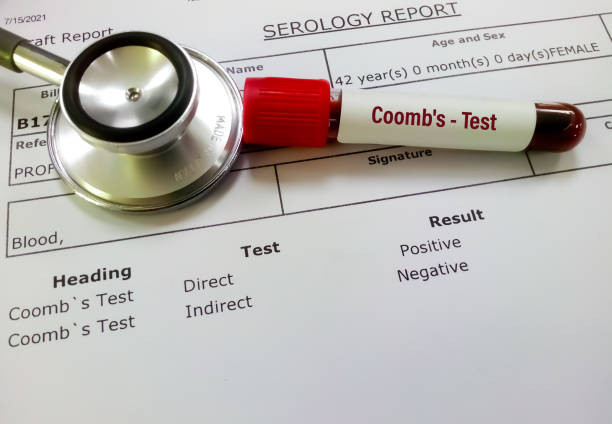Definisi
Rubeola, yang banyak dikenal sebagai campak, adalah infeksi virus yang menginfeksi sel-sel di paru dan tenggorokan. Infeksi ini sangat mudah menular dan bisa mudah menular melalui batuk, bersin, atau menyentuh permukaan benda yang terkontaminasi virus, lalu tangan yang kotor tersebut menyentuh mulut, hidung, atau mata. Meskipun infeksi ini biasanya membaik dalam beberapa hari, namun pada beberapa kasus meskipun sangat jarang terjadi, infeksi ini dapat menyebabkan komplikasi yang parah. Melalui vaksinasi, hal ini dapat dicegah.
Artikel ini akan berfokus pada prosedur yang dilakukan untuk mendeteksi antibodi dalam darah. Pemeriksaan antibodi ini akan mengidentifikasi antibodi yang diproduksi sistem kekebalan tubuh ketika seseorang mendapat vaksinasi atau terinfeksi campak. Pemeriksaan ini dapat digunakan untuk memastikan status kekebalan seseorang, mengidentifikasi kasus campak aktif, atau memantau wabah campak.
Antibodi yang diproduksi sebagai respon terhadap virus campak ini terbagi dalam dua kategori:
- IgM, atau imunoglobulin M, adalah antibodi awal yang dihasilkan sebagai respons saat seseorang mendapat vaksinasi atau infeksi campak. Selama minggu-minggu berikutnya, kadar antibodi IgM di tubuh akan menunjukkan peningkatan selama beberapa hari secara bertahap, mencapai titik tertinggi, dan kemudian menurun secara perlahan.
- IgG, atau imunoglobulin G, adalah antibodi yang selanjutnya diproduksi, tetapi begitu terbentuk, antibodi ini akan bertahan di tubuh dalam waktu yang lama, memberikan perlindungan seumur hidup terhadap infeksi campak berikutnya.
Terkadang, dua sampel darah akan diambil dalam jeda waktu tertentu (sampel darah yang diambil pada infeksi akut dan saat pemulihan penyakit), dan kadar antibodi kemudian dinilai dan dibandingkan. Pendekatan ini dapat membantu membedakan antara infeksi yang terjadi saat ini dan infeksi sebelumnya.
Kami juga memiliki artikel mengenai campak yang bisa Anda baca di sini: Campak - Definisi, Penyebab dan Faktor Risiko.
Indikasi
Jika Anda menunjukkan gejala khas dari campak atau bila Anda baru saja berkontak dengan orang yang terinfeksi dan mengalami keluhan yang mungkin disebabkan oleh campak, dokter bisa menyarankan pemeriksaan campak yang mengukur kadar antibodi IgM dan IgG.
Gejala klinis campak seringkali muncul dalam waktu 7-18 hari setelah Anda terinfeksi dan Anda bisa mengalami satu atau lebih dari gejala berikut ini:
- Ruam kulit khas yang biasanya muncul pada wajah dan secara bertahap meluas ke badan, tungkai dan kaki
- Demam atau suhu tubuh meningkat
- Batuk kering
- Mata bisa berair, merah, dan iritasi
- Fotosensitivitas, atau sensitif terhadap cahaya
- Pilek atau hidung berair (rinorea)
- Sakit tenggorokan
- Bercak putih kecil di dalam rongga mulut
Sistem kekebalan tubuh Anda memproduksi antibodi IgM ketika virus campak sedang aktif dan sedang menyebar di dalam tubuh Anda. Adanya antibodi IgM dapat mengindikasikan bahwa Anda sedang terinfeksi campak atau infeksi campak sedang dalam fase akut.
Pada kasus di mana ada banyak orang yang mungkin telah berkontak dengan orang yang terinfeksi campak dan mereka tidak divaksinasi atau menunjukkan gejala-gejala campak yang disebutkan di atas, pemeriksaan antibodi campak juga bisa diminta untuk dilakukan, terutama bila ada wabah campak atau dicurigai terdapat wabah campak di suatu wilayah. Pemeriksaan ini juga membantu mengidentifikasi kasus campak baru dan kasus campak yang terjadi saat ini, sehingga memungkinkan tenaga kesehatan untuk menerapkan langkah-langkah dalam memperlambat dan menghentikan penularan penyakit.
Kontraindikasi
Tidak ada individu yang dikontraindikasikan dalam melakukan pemeriksaan kadar IgM campak dalam darah; setiap orang bisa menjalani pemeriksaan darah untuk memantau kadar IgM campak dalam tubuhnya.
Persiapan Sebelum Pemeriksaan
Tidak ada persiapan khusus yang perlu Anda lakukan sebelum melakukan pemeriksaan ini. Penting agar Anda menginformasikan dokter Anda mengenai obat-obatan atau suplemen yang sedang Anda konsumsi. Tergantung instruksi yang diberikan dokter, Anda bisa diminta atau mungkin perlu sementara berhenti meminum salah satu dari obat-obatan ini sebelum pemeriksaan.
Prosedur Pemeriksaan
Tenaga kesehatan akan mengambil sampel darah yang dibutuhkan untuk pemeriksaan dari pembuluh vena, umumnya dari vena di lengan Anda, menggunakan jarum suntik kecil. Setelah jarum dimasukkan, sejumlah darah akan diambil dan dimasukkan ke dalam tabung reaksi. Anda mungkin merasa sedikit nyeri saat jarum dimasukkan atau dikeluarkan.
Pada kondisi di mana sampel darah perlu diambil dari bayi, sampel darah juga bisa diambil dari pembuluh darah kapiler di tumit.
Nilai Normal dan Abnormal
Pada pemeriksaan ini, hasil negatif menjadi nilai rujukan, dan berlaku untuk semua orang dari segala kelompok usia. Pada individu yang tidak divaksinasi, jika hasil pemeriksaan antibodi IgM campak positif, maka bisa dianggap bahwa mereka sedang terinfeksi campak.
Hasil dan Saran (Pemeriksaan Lanjutan)
Bila ditemukan antibodi IgM campak di tubuh, terlepas dari apakah antibodi IgG juga ditemukan atau tidak, hasil temuan ini bisa memberikan dukungan klinis dalam mendiagnosis infeksi campak akut atau yang terjadi baru-baru ini.
Jika antibodi IgM campak tidak ditemukan dalam sampel, hal ini dapat menandakan bahwa individu yang diperiksa tidak sedang mengalami infeksi campak akut. Namun begitu, selama tahap awal penyakit, pemeriksaan antibodi IgM campak bisa memberikan hasil negatif, sehingga sangat penting untuk menginterpretasikan hasil pemeriksaan bersama dengan temuan lainnya.
Tabel ini merangkum interpretasi dari hasil pemeriksaan antibodi campak:
|
IgM |
IgG |
Interpretasi |
|
Positif |
Negatif |
Infeksi akut |
|
Positif |
Positif |
Sedang atau baru saja terinfeksi |
|
Negatif |
Positif |
Kekebalan terhadap campak dari infeksi sebelumnya atau vaksin |
|
Negatif |
Negatif |
Tidak ada tanda infeksi atau belum pernah terinfeksi; respons kekebalan tubuh terhadap campak rendah atau tidak ada karena mereka memiliki sistem kekebalan tubuh yang lemah |
Konsultasikan ke Dokter yang Tepat
Campak biasanya didiagnosis hanya berdasarkan gejala dan temuan klinis. Pemeriksaan antibodi IgM campak dapat disarankan pada pasien yang dicurigai menderita campak. Penemuan antibodi ini dalam sampel darah dapat menandakan bahwa individu tersebut baru saja terinfeksi campak, meskipun hasil pemeriksaan tidak bisa diandalkan sebagai satu-satunya alat diagnostik untuk infeksi campak.
Untuk mendapat penjelasan terbaik mengenai hasil pemeriksaan Anda, Anda bisa berkonsultasi dengan dokter umum atau dokter spesialis penyakit dalam. Penafsiran mengenai hasil pemeriksaan akan diinterpretasikan bersama berdasarkan kondisi kesehatan, faktor risiko, dan gejala penyakitnya secara keseluruhan.
Mau tahu informasi seputar hasil pemeriksaan laboratorium, radiologi, dan lainnya? Cek di sini, ya!
- dr Hanifa Rahma
Measles and Mumps Tests. (2022). Retrieved 22 May 2023, from https://medlineplus.gov/lab-tests/measles-and-mumps-tests/#
Measles (Rubeola) Antibodies, IgM, Serum. (2023). Retrieved 22 May 2023, from https://www.mayocliniclabs.com/test-catalog/overview/80979#
Measles, Mumps, Rubella Antibody. (2023). Retrieved 22 May 2023, from https://www.urmc.rochester.edu/encyclopedia/content.aspx?contenttypeid=167&contentid=mmr_antibody
Measles (Rubeola). (2022). Retrieved 22 May 2023, from https://www.cdc.gov/measles/lab-tools/serology.html
Measles and Mumps Tests. (2021). Retrieved 22 May 2023, from https://www.testing.com/tests/measles-and-mumps-tests/











